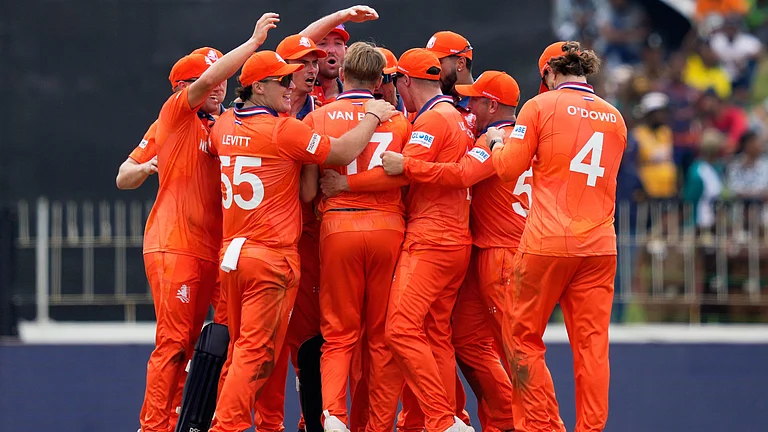But Mrinal Pande overcame these limitations to rise to the pinnacle of her profession. Now she wants to tell the world that those who insist on communicating in Hindi are second-class citizens in the big, bad world of Indian media. Worse, the great pillar of the country's democracy is dominated by a petty, English-speaking elite who are often out of sync with the reality that is Bharatvarsha.
Is there something unique about a fictionalised autobiography? Or do most authors invariably draw on their personal experiences to attract the attention of the audience? There are definite constraints with all literature of this genre. When public figures write about their own lives, comparisons are bound to be made between actual people and their fictionalised counterparts. Then come the attempts to interpret reality. There's one catch, however.
Whether it be P.V. Narasimha Rao's Anand in The Insider or Pande's Krishna, the author as protagonist paints a positive picture of himself/herself. Having decided to adopt this technique, the reader's empathies necessarily fall on the side of the principal player and his/her perspective and perceptions of the truth.
Pande has a clear, conversational style, a bit like the now-defunct Mrinal Ki Baithak. From describing her travails in the Old Building of one of India's largest publishing groups (read The Times of India) to her rise as the anchor of "one of the country's most popular television channels" (read New Delhi Television and Star News), Pande's pen - sorry, flying fingers on the keyboard - seeks to expose the hypocrisy and corruption of some of the leading media personalities in India.
This book will certainly be read by Pande's peers. Writing fiction helps: no defamation suits. Change a few facts around; remove a beard, alter the background of the widow of a now-deceased TV anchor. You can always turn around and say it was just a figment of someone's fertile imagination. That way you can bitch about your former colleagues and also maintain social niceties with your cocktail-party compatriots.
Pande is at her best when her protagonist evocatively describes memories of her grandparents, her tryst with her ailing mother and her journeys through the Himalayas. She is at her evasive best when detailing her relationship with her husband (who is the strong, silent, stoical sort). She is at her gossipy worst when recounting selective snippets of the personal lives of people she hated and those she loves to hate.
Her book, dedicated to the late Nikhil Chakraborty, opens with a quote from Marathi poet Tukaram from which the title has been taken. As a reviewer who hails from the tribe to which Pande belongs, I would frankly have preferred a no-holds-barred work of non-fiction. I was engrossed by the book. But I would have liked it better if it had bit the bone a bit harder.
Instead, Pande pulls her punches. The characters she flays are frail and self-obssessed. But we are not quite sure why she has praised others. At times, she seems coy, almost unwilling to bare the naked truth, the grisly underbelly of the media monster. She stops short of outright condemnation, preferring instead to hector and lecture. As for the tumultuous events of the decades of the '80s and the '90s, Ms Pande has highlighted certain national events to the exclusion of others.
Those looking for a bit of titillation need not be disappointed. Perhaps you could spot the likes of the Roy husband-wife duo (they appear as brother-sister in the book) and others with ndtv, the late Surendra Pratap Singh, Pritish Nandy and many more. Was I dreaming? I went back to the beginning and learnt that "any resemblance to any actual person, living or dead, is entirely coincidental."

























